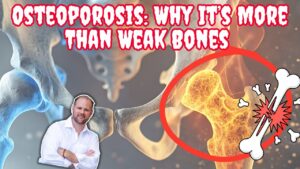Digestion 101: Food, Acid, and You
Here’s a critical component of your body you probably haven’t given much thought to: your stomach acid, particularly hydrochloric acid. You chew, you swallow, your food goes ‘down the hatch,’ and then what? How does that delicious steak transform into energy and nutrients for your body? Enter: hydrochloric acid, the unsung hero of your digestive system.
When you dine on a juicy steak, it’s hydrochloric acid’s responsibility to break that protein-packed meal down into its component parts: large proteins, polypeptides, and eventually amino acids. The same goes for fats and carbohydrates; they don’t stand a chance against this powerful acid.
Without a proper level of hydrochloric acid, your food passes from your stomach to your small intestine underprepared for the next stage of digestion. The pH isn’t low enough, and so the grand concert of digestion hits a sour note.
Enzymes and Bile: The Supporting Cast
Lorem ipsum dolor sit amet, consectetur adipiscing elit. Ut elit tellus, luctus nec ullamcorper mattis, pulvinar dapibus leo.
Symptoms of Poor Hydrochloric Acid Production
Did you know your stomach acid plays a pivotal role in preventing the overgrowth of harmful bacteria? In this regard, think of hydrochloric acid as a weed killer, safeguarding your gut garden from invading weeds. Without enough acid, these ‘weeds’ proliferate, leading to an unpleasant condition known as Small Intestinal Bacterial Overgrowth (SIBO).
Concluding Thoughts on Hydrochloric Acid
Now, isn’t it clear that your stomach acid, especially hydrochloric acid, is critical to your health and well-being? It’s a cornerstone of your digestion, breaking down food, triggering vital processes, and even protecting you from harmful bacteria. So the next time you’re enjoying a hearty meal, remember to give a mental nod to your amazing stomach acid.
If you found this enlightening, why not spread the knowledge? Sharing is caring, after all. Like, comment, and share this with someone who might benefit from it.
P.S. Curious about your hydrochloric acid levels?
We’ve got a handy protocol on our website that can help you figure that out. Check it out.
Frequently Asked Questions (FAQ)
Hydrochloric acid is the "unsung hero" of your digestive system. Its primary role is to break down proteins, fats, and carbohydrates from your food into their basic components (like amino acids from steak). Without adequate acid, food passes to the small intestine unprepared, disrupting the entire digestive process.
Think of hydrochloric acid as a "weed killer" for your gut. It creates a highly acidic environment that prevents the overgrowth of harmful bacteria. Without enough acid, bacteria can proliferate, leading to conditions like Small Intestinal Bacterial Overgrowth (SIBO).
Insufficient hydrochloric acid leads to poorly digested food, which disrupts the entire "concert of digestion." This can cause a cascade of problems, including poor nutrient absorption and an increased risk of bacterial overgrowth in the small intestine.







